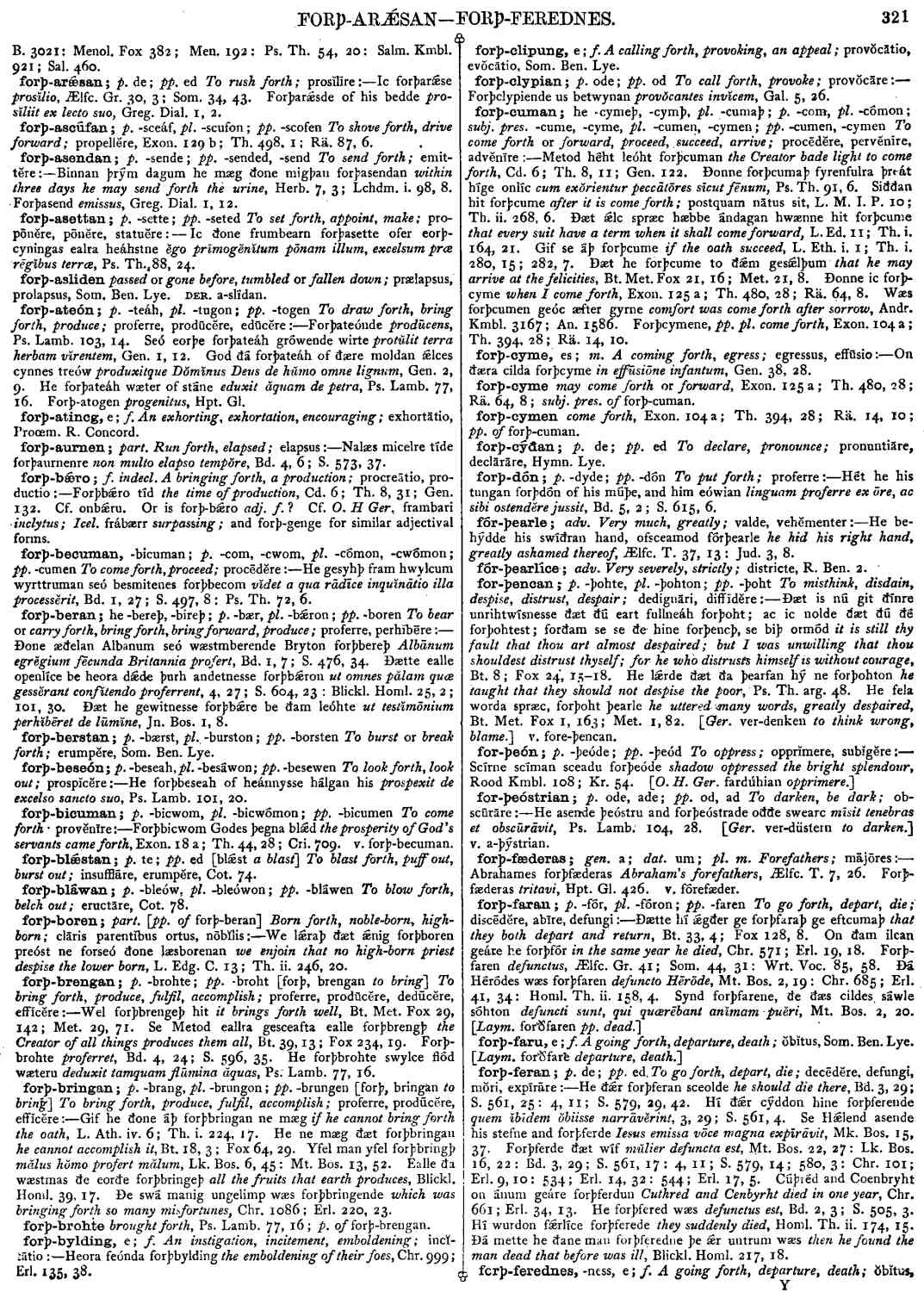forþ-feran
- verb [ weak ]
-
He ðǽr forþferan sceolde
he should die there,
- Bd. 3, 29 ;
- S. 561, 25: 4, 11 ;
- S. 579, 29, 42.
-
Hí ðǽr cýddon hine forþferende
quem ĭbīdem ŏbiisse narrāvĕrint,
- 3, 29 ;
- S. 561, 4.
-
Se Hǽlend asende his stefne and forþferde
Iesus emissa vōce magna expĭrāvit,
- Mk. Bos. 15, 37.
-
Forþferde ðæt wíf
mŭlier defuncta est,
- Mt. Bos. 22, 27: Lk. Bos. 16, 22: Bd. 3, 29 ;
- S. 561, 17: 4, 11 ;
- S. 579, 14 ;
- 580, 3: Chr. 101 ;
- Erl. 9, 10: 534 ;
- Erl. 14, 32: 544 ;
- Erl. 17, 5.
-
Cúþréd and Coenbryht on ánum geáre forþferdun
Cuthred and Cenbyrht died in one year,
- Chr. 661 ;
- Erl. 34, 13.
-
He forþfered wæs
defunctus est,
- Bd. 2, 3 ;
- S. 505, 3.
-
Hí wurdon fǽrlíce forþferede
they suddenly died.
- Homl. Th. ii. 174, 15.
-
Ða mette he ðane man forþferedne þe ǽr untrum wæs
then he found the man dead that before was ill,
- Blickl. Homl. 217, 18.
Bosworth, Joseph. “forþ-feran.” In An Anglo-Saxon Dictionary Online, edited by Thomas Northcote Toller, Christ Sean, and Ondřej Tichy. Prague: Faculty of Arts, Charles University, 2014. https://bosworthtoller.com/11845.
Checked: 1